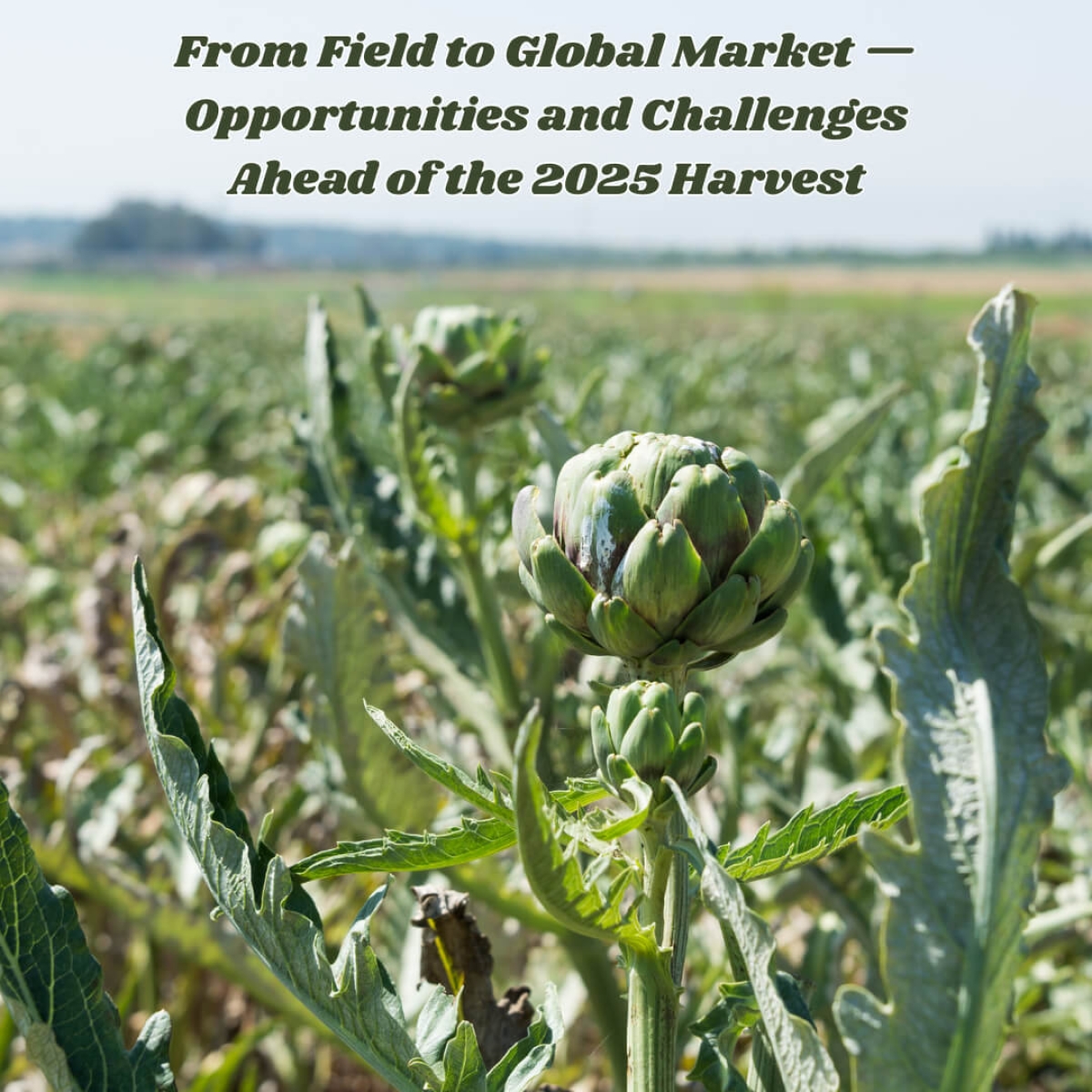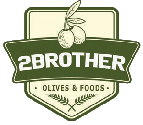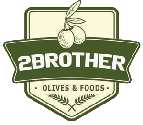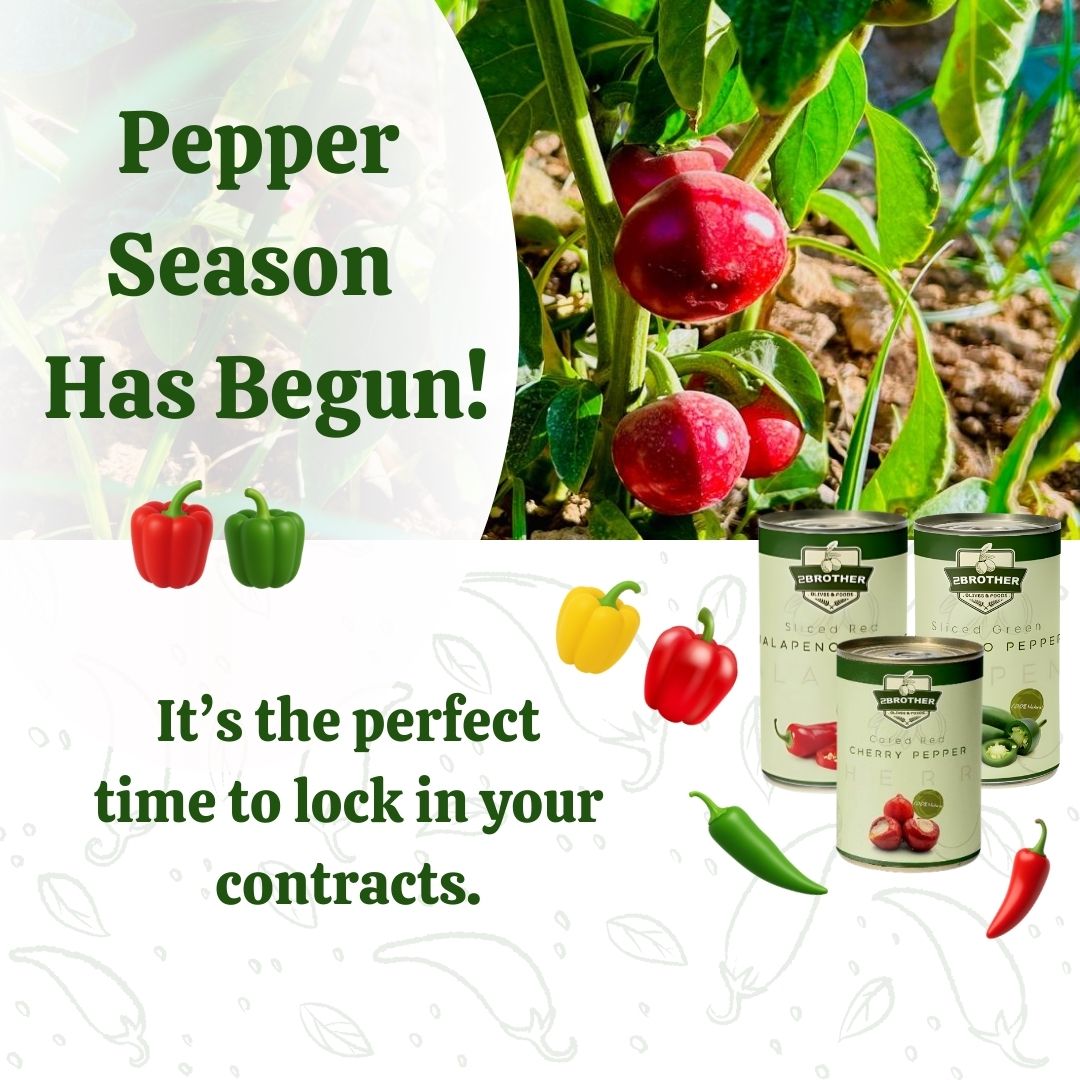Egypt’s Artichoke: From Field to Global Market — Opportunities and Challenges Ahead of t

Introduction
Egypt stands today among the world’s most promising producers of artichokes — a crop that combines heritage, nutrition, and strong export potential. With its Mediterranean climate and fertile soils, Egypt has become a global leader in artichoke cultivation. Yet, despite this advantage, the country’s share in international trade remains far below its true potential.
As the 2025 harvest season approaches, understanding where Egypt stands — and how to overcome key bottlenecks — is essential for building a more competitive and sustainable export sector.
Global Artichoke Market Overview
The global artichoke market has demonstrated consistent growth over the past decade. Total world production reached approximately 1.6 million tons in 2022, driven by the expansion of Mediterranean cuisine and increasing consumer demand for healthy, plant-based foods.
Egypt produced about 460,000 tons in 2022, ranking first worldwide, ahead of Italy and Spain. Global forecasts indicate that the market will reach nearly USD 3.6 billion by 2032, supported by rising health awareness and the popularity of processed and frozen artichoke products.
For Egypt, this represents a golden opportunity to move from being a major producer to becoming a recognized and trusted exporter of premium artichokes.
Challenges Facing Egyptian Artichoke Exports
Despite its strong agricultural base, several structural and logistical challenges continue to limit Egypt’s export performance:
1. Cold-Chain and Logistics Infrastructure
While domestic production is abundant, many regions still lack the advanced cold-chain systems necessary for export. Efficient pre-cooling, refrigerated transportation, and temperature-controlled storage are critical to maintaining freshness and reducing post-harvest losses.
2. Packaging and International Compliance
Major export destinations such as the European Union and North America enforce strict food-safety, traceability, and packaging standards. Without internationally certified packaging lines, clear labeling, and compliance documentation, Egyptian artichokes struggle to compete with European suppliers.
3. Limited Global Marketing and Buyer Access
Most producers target local or regional markets. The lack of international marketing strategies, buyer engagement, and export branding keeps Egyptian products under-represented in high-value markets.
4. Traditional Cultivation Practices
Although Egypt’s climate is ideal for artichokes, many farms still rely on outdated cultivation methods. Adopting precision irrigation, high-yield varieties, and mechanized harvesting would improve both quality and consistency — essential for export success.
Opportunities Ahead of the 2025 Harvest
With the harvest season approaching, the outlook for Egyptian artichokes is highly promising. Global demand for canned, frozen, and fresh artichokes continues to grow — particularly in Europe, North America, and the Gulf region.
By investing in modern farming techniques, advanced post-harvest handling, and certified processing facilities, Egypt can strengthen its competitive position. Proximity to European ports offers an additional logistical advantage that reduces transit time and cost compared to other suppliers.
2Brother’s Vision
At 2Brother, we believe that excellence starts long before the harvest.
Our strategy focuses on building an integrated system that guarantees quality, consistency, and sustainability:
-
Partnering with local farms using modern irrigation and agritech solutions to ensure optimal crop conditions.
-
Upgrading our processing and packaging lines to meet EU and U.S. export specifications.
-
Implementing traceability and quality-control systems that align with international food-safety certifications such as HACCP and ISO 22000.
-
Developing sustainable logistics models that preserve freshness from the field to the port.
We don’t just produce artichokes — we deliver export-ready Egyptian excellence trusted by global partners.
Looking Ahead
Egypt’s position as a top artichoke producer can evolve into a true global export success story. By combining innovation, modern infrastructure, and strong quality management, the Egyptian agrifood industry can compete on equal footing with long-established Mediterranean exporters.
At 2Brother, we see every harvest as an opportunity — an opportunity to raise standards, connect markets, and showcase the best of Egyptian agriculture to the world.
“Quality doesn’t end in the field — it travels from soil to shelf.”









